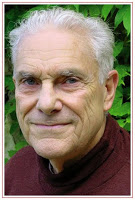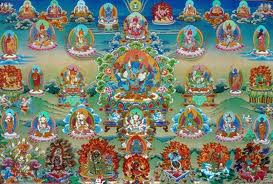The Tibetan Book of the Dead – the Bardo Thodol
Meditation and the after death state.
As he is ordinarily, the human being does not realize to what extent, or in what manner, life and death are closely linked. During his whole lifetime, it never occurs to him that, at each moment that passes by, he is in the process of dying. And when … Read the rest >




 The thing is we say we want to be enlightened, but we don’t really. Only bits of us want to be enlightened. The ego which thinks how nice, comfortable and pleasant it would be. But to really drop everything and go for it! We could do it in a moment but we don’t do …
The thing is we say we want to be enlightened, but we don’t really. Only bits of us want to be enlightened. The ego which thinks how nice, comfortable and pleasant it would be. But to really drop everything and go for it! We could do it in a moment but we don’t do … 
 The Sanskrit word for mindfulness is « Smirti », in Pali it’s « Sati », and in Tibetan « Drenpa » . Significantly, they all mean “to remember”. It’s what the Catholics call “being in a state of recollection”. And it’s extremely difficult.
The Sanskrit word for mindfulness is « Smirti », in Pali it’s « Sati », and in Tibetan « Drenpa » . Significantly, they all mean “to remember”. It’s what the Catholics call “being in a state of recollection”. And it’s extremely difficult. Thine own intellect, which is now voidness, yet not to be regarded as of the voidness of nothingness, but as being the intellect itself, unobstructed, shining, thrilling, and blissful, is the very consciousness, the All-good Buddha.
Thine own intellect, which is now voidness, yet not to be regarded as of the voidness of nothingness, but as being the intellect itself, unobstructed, shining, thrilling, and blissful, is the very consciousness, the All-good Buddha.